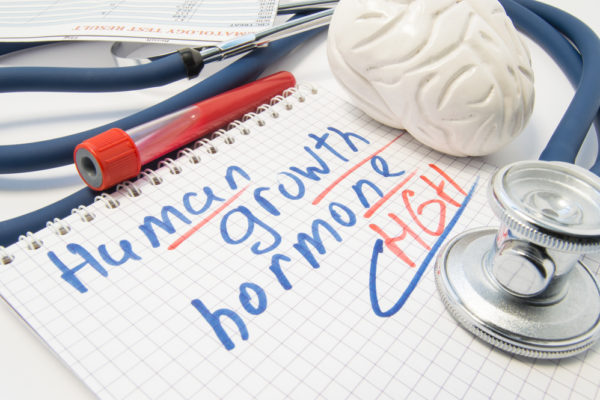The world is changing all around us at a rapid and ever quickened pace. This is great news when it comes to advances in technology that make our lives easier, advances in medicine that allow us to live longer or healthier, or advances in social structures that provide a better quality of life for everyone.
Our bodies, however, are still built based on the functionality that we were created for, and many of these rapid changes in technology, environment, and food are having ramifications that we haven’t even begun to understand. We are only beginning to understand the dangers of BPAs, and that some of the plastics that hold our food and liquids may be leeching these hormone-altering chemicals into what we eat and drink.
The pandemic lockdowns were perhaps the most drastic change to our society in many decades, leading to an epidemic of drug overdoses, obesity, and overindulgence in vices as people had difficulty coping with being locked inside of their houses and not being able to interact with friends and family in the way that we were accustomed to.
Most pet owners will pay close attention to the food they feed their pets and will always remember to take their dogs for their daily walk. We, as humans tend to forget that we are merely mammals at our core, animals ourselves that are not meant to be living under incandescent lighting, staring at a computer screen, and eating preservative-laden food all day long.
Each of these and many other environmental detriments in our society have led to changes in our bodies and our very health that we are still working to come to grips with. One of those changes is an epidemic of hormone imbalances of various types that are affecting both men and women, upsetting the balance of the very thing that makes us male or female.
Thankfully, some of the medical advances that we have seen have found ways to help counteract these imbalances that have been creeping into our society, leading men and women who have been affected by these environmental changes to have a simple, safe and effective way to bring their levels back to normal.
In this article, we will cover some of the most prevalent types of hormonal imbalances that are seen in our society today, the signs and symptoms that present with those imbalances, and how they can be corrected.
Summary
Hormone imbalances can lead to drastic and disruptive changes in our lives. The hormones most likely to be imbalanced in women are estrogen, testosterone, and progesterone. The hormone that most frequently goes out of balance in men is testosterone. There are many symptoms that can occur as a result of these imbalances, but thankfully most of these can be treated with safe and effective medications if treated by a licensed medical professional.
Women may be quickly diagnosed and treated for any hormone imbalance at their regular checkup or appointment with their OB/GYN, but men are less likely to see a specialist that will be able to identify and treat a testosterone imbalance. For men feeling the effects of low testosterone levels, anti-aging clinics are specialists in low testosterone evaluation, treatment, and monitoring who can help men get their lives and testosterone levels back on track.
The answer is yes, in most cases, you can take HRT your whole life, and in most cases, you should.
What is Hormone Replacement Therapy (HRT)?
Many of our body’s functions are run by hormones, powerful chemicals that are made in your endocrine glands (pituitary, pineal, thymus, thyroid, adrenal, pancreas & testes), and excreted into your bloodstream to tell your body to perform certain functions. The hypothalamus in your brain controls many things, including the release of hormones from your pituitary gland.
As you begin to age beyond your childbearing years, both men and women naturally begin producing less of the hormones that regulate their masculinity or femininity. Most everyone has heard of menopause, the process that a woman’s body goes through as she ages and her body begins to produce less estrogen. Fewer people have heard of andropause, the same process that occurs in men as they age and their body begins producing less testosterone.
While this may be thought of as a normal aging process, there are various environmental and other factors that have led these processes to begin to occur in men and women in the western world much earlier than would occur naturally, and scientists are still trying to figure out exactly why that is.
We know that one of the major factors that can lead to a disruption in your body’s normal production of estrogen or testosterone is cortisol, another body regulating hormone that is released when your body is under great stress. It could be reasonably assumed that the fear, stress, and changes that our society has seen as a result of the pandemic and subsequent lockdowns have greatly increased the amount of cortisol being released into our bodies, society-wide.
Whatever the reason, doctors and anti-aging clinics around the country are finding that these processes and hormone disruptions are happing to more people at a younger age than ever before. It has recently been discovered that approximately 40% of men over the age of 45 are currently suffering from andropause (low testosterone or “Low T”) as are approximately 20% of men over the age of 60.
If you look at those figures, something alarming should immediately jump out at you: why are a greater percentage of men over the age of 45 suffering from Low T than those over the age of 60, if this is typically thought of as a “normal process of aging?”
Even more alarming is the fact that a recent study found that only about 12% of men suffering from the symptoms and effects of low testosterone will actually seek treatment, despite the fact that Testosterone Replacement Therapy (TRT) is available, safe, and attainable through anti-aging clinics.
Next, we will go through the types of hormone replacement therapy, the signs and symptoms of menopause (for women) and andropause (for men), potential side effects of hormone replacement therapy, long term effects of hormone replacement therapy, and how to find and begin treatment if you feel that it is something that could benefit your life.
Types of Hormone Replacement Therapy for Women
Because their profound ability to give life is the most essential requirement for our species to survive, the female lifecycle is divided into three segments: pre-child bearing years, childbearing years, and post-child bearing years.
The female body and many of its functions related to these segments are regulated and run by the hormones estrogen, progesterone, and even testosterone. The levels of these hormones in the female body can cause dramatic changes if they change, naturally or unnaturally, especially in the child-bearing and post-childbearing years.
These stages can also be described by the way that women’s hormones change in these times. Premenopause accounts for the largest part of a woman’s life and is the time when her body is focused on her reproductive functions. This is the longest stage of her reproductive cycle and lasts from the time she gets her first menstrual cycle and continues until she has her last one. These reproductive hormones are at their highest levels beginning in her teenage years and last until her mid to late 20s. They will then begin to slow and level off in her 30s and 40s.
Perimenopause can last anywhere from two to ten years and marks the end of a woman’s childbearing years and reproductive cycle. This stage is full of drastically changing hormone levels, which can cause great discomfort as well as strains on a woman’s mental and physical state. Most people are familiar with hot flashes, the classic symptom of perimenopause that marks the beginning of her hormones declining.
Menopause is the stage during which a woman’s body ceases to produce new eggs and produces less estrogen and progesterone. For many women, the hot flashes and other symptoms of perimenopause will continue during menopause but will decline and eventually cease once this stage is over.
Post-menopause is the final stage of a woman’s reproductive cycle and is marked by the inability to naturally produce eggs and become pregnant. The unfavorable effects of perimenopause and menopause subside, but many women begin to be more prone to issues like lowered libido, osteoporosis, forgetfulness, and lower energy levels during post-menopause.
While the above lists the typical hormonal changes that occur during a woman’s life, there are many environmental, health, and other factors that may lead to hormone imbalances and cause changes in a woman’s cycle. The signs of hormonal imbalances in women are:
Signs of Hormone Imbalance for Women
- Mood swings
- Hot flashes
- Constipation or diarrhea
- Irregular menstrual cycle
- Infertility
- Pain in the abdomen or the back during menstruation
- Lowered libido
- Insomnia (difficulty sleeping)
- Unexplained weight gain or weight loss
- Brittle bones (osteoporosis)
- Excessive hair growth
- Rashes on the skin
- Vaginal dryness
Thankfully medical advances have given us ways to treat most of these issues with safe and effective treatments. The treatments for hormone imbalances in women are:
Hormone or Birth Control
If a woman is no longer planning to get pregnant, medications like Hormone Replacement Therapy or birth controls that contain estrogen or progesterone may help if she is having irregular menstrual cycles. These are available in many different forms, whether it be a pill, patch, implantable IUD, ring, or an injection.
Vaginal Estrogen
Vaginal dryness may be a symptom of an estrogen imbalance for a woman, especially when she is reaching the stages of perimenopause or menopause. For women experiencing these symptoms, there are creams, rings, and tablets that contain estrogen which may be used to alleviate the symptoms.
Eflornithine (Vaniqa)
Most women do not want to grow their facial hair, but that can often be a symptom of a hormone imbalance. Eflornithine is available in a prescription cream that can help to slow facial hair growth in women with hormone imbalances.
Anti-Androgen Medication
Some women have higher levels of androgen and testosterone than others. Even though this is thought of as a predominately male hormone, it is also present in women. For women with higher levels of androgen or testosterone, there are medications that can block its production to limit increased acne and/or hair growth.
Letrozole (Femara) and Clomiphene (Clomid)
Polycystic Ovary Syndrome (PCOS) is a hormonal imbalance that occurs in some women and causes enlarged ovaries with small cysts on the edges. This disorder is not very well understood, but it is thought to be potentially caused by genetic and environmental conditions.
Women who have PCOS may be prescribed Letrozole or Clomiphene if they are trying to conceive, as well as infertility injections of gonadotropins. They also may be candidates for In Vitro Fertilization, although this procedure can be quite expensive and difficult.
Hormone Replacement Therapy for Men
Men obviously play a vital role in the process of bringing a new life into the world, but because our bodies do not carry the child our hormones are far less intricate than women. The hormone that drives much of a man’s lifecycle, manly characteristics, desires, motivations, and urges is testosterone.
While our systems may be far less intricate than women’s, the results of hormonal imbalances can be extremely detrimental to a man’s life, and the symptoms of low testosterone can be catastrophic if not treated. The symptoms of andropause, low testosterone, or “Low T” are:
- Low sex drive
- Fatigue
- Reduced lean muscle mass
- Irritability
- Erectile dysfunction
- Depression, a loss of confidence or sense of self-worth
- Increased weight and fat gain
- Memory loss
The treatments for men with hormone imbalances may include:
Thyroid Medication
Weight gain can mean far more than just your favorite pair of jeans no longer fitting. Left untreated, weight gain may lead to serious conditions such as diabetes, high cholesterol, heart disease, and many other factors that can cause serious health conditions or loss of life. To prevent this, some men whose thyroid is not secreting the appropriate hormones to keep their weight in check may be prescribed thyroid medications.
Testosterone Replacement Therapy (TRT)
As testosterone is the hormone that regulates much of what drives a man and his body, Testosterone Replacement Therapy (TRT) is the most often prescribed treatment for men suffering from the signs and symptoms listed above due to a hormone imbalance.
Testosterone Replacement Therapy comes in many forms, each of which are prescribed, monitored, and regulated by medical professionals. These may come in the form of oral pills, gels, sublingual pills, or injections. Despite the various forms of TRT, injections are generally preferred by medical professionals. This is because they offer a steady, uniform method of providing the treatment directly into your large muscle groups where it can be distributed through the rest of your body.
The pills and tablets must be ingested and metabolized by your liver, which may cause harm over a long period of time. The gels, patches, and sprays may also cause issues because they can be affected by uneven distribution, sweat, hair, or clothing. There is the additional risk of transference in men with families, in that their towels, clothing, or skin may come into contact with their significant other or children.
While Testosterone Replacement Therapy can help a man reverse the symptoms listed above and help them to regain their life, motivation, and energy, studies have shown that as few as 12% of men who are suffering from low testosterone will even seek treatment. Despite the advancement of anti-aging clinics and the ability to easily procure TRT, some men still do not know the appropriate steps of how to be evaluated for low testosterone or where to find treatment. If you are a man who feels that the symptoms listed above apply to you, we will list ways that you can find an anti-aging clinic that is matched to your unique needs and situation at the end of this article.
Human Growth Hormone (HGH)
Some men actively seek out Human Growth Hormone (HGH) because they have heard or been told that it may help with low testosterone or to counter the effects of aging. While this is a popular thought and there are many over-the-counter supplements that claim to have or give the same effects as HGH, studies have shown that HGH may not provide any benefit to healthy adult males and instead may cause undue harm.
Some of the potential side effects of HGH use in healthy males are:
- Nerve, muscle, or joint pain
- Swelling due to fluid in the joint’s tissues
- Carpal tunnel syndrome
- Numbness and tingling of the skin
- High cholesterol
Where can men get Testosterone Replacement Therapy?
While your primary care physician may be able to diagnose and treat low testosterone, we have found that many doctors are unfamiliar with low testosterone, both in the scale on which it is affecting men in our society and the life-changing effects of Testosterone Replacement Therapy.
Many primary care physicians are not fully up to date with the medical studies or treatment protocols for Testosterone Replacement Therapy, as it may not be a large part of their practice. For men who feel they may be suffering from the symptoms of low testosterone, anti-aging clinics like Prolong Labs have dedicated their practices to aid men who are living with these symptoms.
The process is simple and after an evaluation, our team can prescribe you a TRT regimen and provide you with the medication to help you resolve those symptoms.
What are the potential side effects of Testosterone Replacement Therapy?
One of the issues that primary care physicians may have in regards to Testosterone Replacement Therapy is that they are not fully up to date on the latest medical studies that have looked into the side effects of TRT. This is not their fault, as doctors are extremely busy and often simply do not have the time to keep up with studies that do not directly affect their patients or practices.
They may have seen or heard of older studies that were conducted in the infancy of testosterone research, some of which listed potential side effects that had not been fully investigated at the time of the studies but instead were things that researchers thought maybe side effects because of what testosterone does to the body.
Subsequent and more recent studies have found that Testosterone Replacement Therapy may in fact help some of the underlying conditions and issues that earlier studies guessed may be caused by TRT.
Some of those potential side effects are:
Cardiovascular Disease (CVD)
Reduced testosterone serum levels in males have been associated with an increased chance of developing Cardiovascular Disease (CVD), but the studies attempting to determine if lowered testosterone levels actually cause CVD have so far been inconclusive.
There may be many variables at hand regarding this issue. As low testosterone causes a loss of energy, lean muscle mass, and difficulty adding new lean muscle, there could be a factor that lowered testosterone levels may lead to men who don’t have the energy or desire to exercise, which in itself could eventually be one of the precipitating factors in developing CVD.
While these studies were not able to determine a link between Testosterone Replacement Therapy and CVD, they did find that men with significant comorbidities may be at a greater risk of developing these issues if they undergo TRT.
Risk of Prostate Cancer
Because Testosterone Replacement Therapy does cause a slightly enlarged prostate or minimally elevated Prostate Specific Antigen (PSA) levels in some men, this is a potential side effect that has been looked into greatly. Studies have found that while TRT does cause an enlarged prostate in some men, it does not appear to have any increase in the levels of prostate cancer. One study actually found that men who developed prostate cancer while undergoing Testosterone Replacement Therapy had better outcomes than those who had not undergone TRT.
Due to the enlarged prostate and risk that older men face of prostate cancer, studies have found that men undergoing Testosterone Replacement Therapy were 11 times more likely to receive a prostate biopsy than men who had not, although there was no difference in the men undergoing TRT who actually developed prostate cancer.
What are the long-term effects of Testosterone Replacement Therapy?
Although there have been many studies looking into individual comorbidities and outcomes regarding Testosterone Replacement Therapy, there have not been studies looking directly into the long-term effects of TRT. Each of the potential side effects that may occur as a result of the treatment has been well documented, however, and can be easily identified as long as you are maintaining your regular checkups and lab work with your doctor or anti-aging clinic.
The greatest danger to men who undergo Testosterone Replacement Therapy for long periods of time is in those who choose to procure testosterone through illicit means off of the internet rather than going through a licensed and approved anti-aging clinic.
Because anti-aging clinics have made this the focus of their practices, they are acutely aware of the potential side effects or issues that may be caused by TRT and can identify any of the developing signs through your regular lab work, checkups, and evaluations.
Men who choose to order their testosterone through illicit means or ways other than going through an anti-aging clinic face the risk of misdiagnosing themselves, taking an incorrect amount, or, even worse, procuring a fake or subpar pharmaceutical product. As long as men are going through licensed and approved clinics like Prolong Labs, they can rest assured that the licensed medical professionals monitoring their treatment will be able to identify and resolve any potential issues that may arise.
Closing
Hormones are very powerful chemicals that are extremely important in the development and functions of our body on a daily basis. For women, hormonal imbalances can be identified and treated through their OB/GYN or primary care physician. Testosterone imbalances can lead to severe symptoms in men, but unfortunately, men are not as likely to see a medical professional on a regular basis who can identify and treat low testosterone with the correct protocols.
If you are a man who identifies with the symptoms listed above and wants to get your testosterone levels back to their normal range so that you can reclaim your happy, healthy, and energetic life, an anti-aging clinic like Prolong Labs is best suited to evaluate and treat the symptoms of low testosterone.
Our team at Prolong Labs will help you find the right anti-aging clinic at no extra cost to you and will help you get your symptoms resolved as soon as possible. Low testosterone levels can wreak havoc in a man’s life, but those symptoms do not need to be permanent. If Low T has been affecting your life, call our team at Prolong Labs now to reclaim your life and put some pep back in your step.






